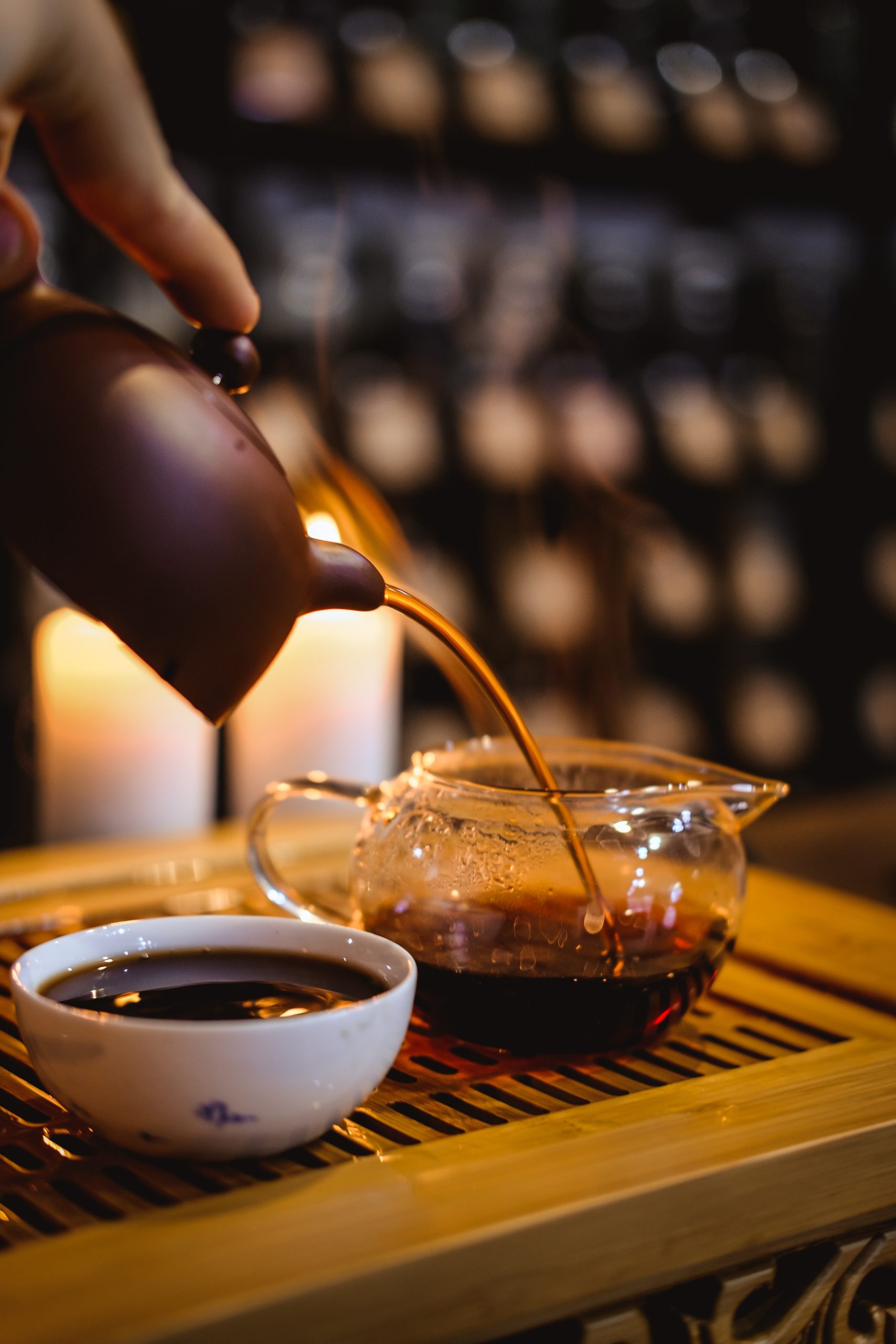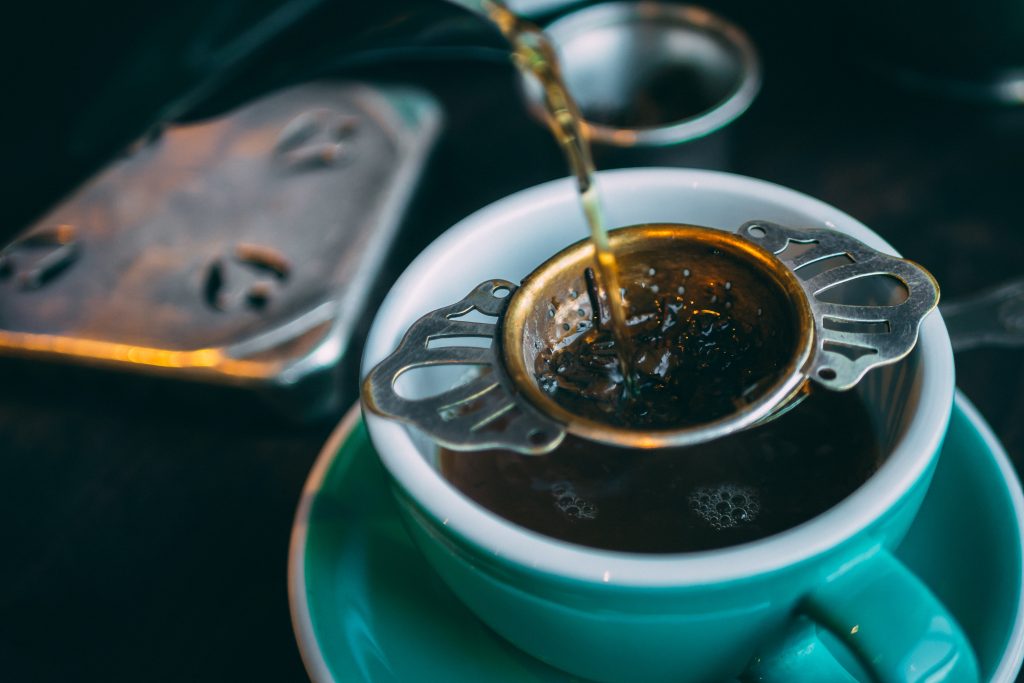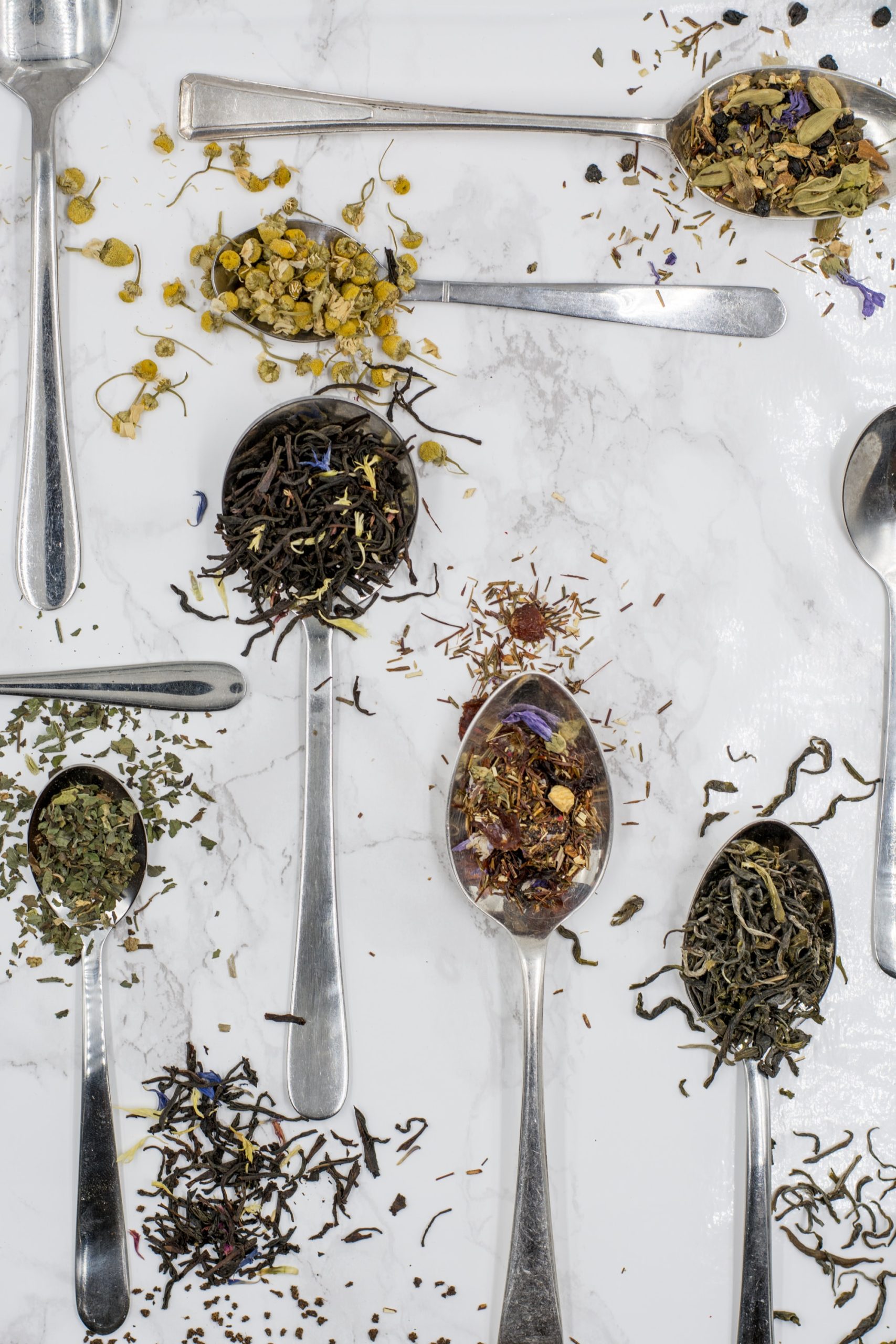Discover the Surprising Chai Tea Benefits

Welcome and prepare to explore nature’s treasure trove in the form of a delicacy known as chai tea. There’s more to chai tea than a comforting, warm, and spicy tea, and today we delve into the amazing health benefits of chai.
What are the health benefits of chai tea?
Chai tea isn’t just a fan-favorite because of its complex flavors. The unique combination of spices and tea in chai provides the most health benefits compared to other teas. The health benefits of chai tea are vast and have been recognized in traditional medicine for centuries. Many of the spices in chai also have antiviral and antibacterial properties, which help support the immune system and protect against infections.
Effects of chai tea on heart health
Drinking chai tea may contribute significantly to heart health. The black tea leaves found in chai tea contain substances that help to reduce bad cholesterol, blood sugar levels, and blood pressure, therefore promoting heart health. In particular, chai tea may help maintain healthy blood pressure levels, which is important for overall heart health.
How tea can improve your health
Tea, specifically chai tea, can help improve your health in a multitude of ways. Antioxidants chai are abundant due to the combination of black tea and spices like cinnamon, cardamom, and cloves, which help neutralize free radicals and protect cells. The spices in chai, such as ginger, cinnamon, and cardamom, have anti-inflammatory and antioxidant properties that can aid digestion and boost the immune system respectively. Black tea, a key ingredient in chai, comes from the camellia sinensis plant, which is the source of all true teas (including white tea) and contributes both antioxidants and caffeine to chai’s health benefits.
Can drinking chai tea contribute to overall wellness?
Drinking chai tea can improve overall in so many health benefits, from aiding digestion to enhancing mood and mental focus due to the presence of caffeine and spices such as clove and cinnamon.
Additionally, black tea in chai contains L-theanine, an amino acid known for its calming effects, which helps reduce stress and promote relaxation.
The history and cultural significance of chai tea
Chai tea boasts a fascinating history that stretches back thousands of years, with its roots firmly planted in the ancient cultures of India and China. The very word “chai” comes from the Chinese word for “tea,” reflecting the drink’s journey along the Silk Road, where it was enjoyed as a spiced tea by traders and travelers alike. Over time, chai tea evolved into what we now know as traditional masala chai—a beloved beverage in India made from black tea, milk, sugar, and a signature blend of aromatic spices like cinnamon, cardamom, ginger, and cloves.
In Indian culture, masala chai is much more than just a tasty cup of spiced tea; it’s a symbol of hospitality, warmth, and togetherness. Offering a cup of chai tea to guests is a cherished tradition, and sharing chai is a common ritual at social gatherings, weddings, and celebrations. The preparation of chai tea is often a family affair, with each household perfecting its own unique chai tea blends and spice combinations.
Today, the popularity of chai tea has spread far beyond the Indian subcontinent. Coffee shops and tea houses around the world now serve their own versions of chai lattes and chai tea blends, introducing this classic spiced tea to new audiences. Despite its global reach, traditional masala chai remains a cornerstone of Indian daily life, celebrated for its rich flavors, comforting aroma, and deep cultural significance.
What does chai tea contain that makes it beneficial?

Photo by Matt Seymour on Unsplash
The role of black tea in chai blends
Chai consists mainly of black tea and spices, the combination of which lends chai its unique taste and health benefits. Indian black teas, such as Darjeeling and Assam, are commonly used in chai blends and contribute to its distinctive flavor and antioxidant properties. The black tea base, rich in flavonoids, acts as a powerful antioxidant.
How masala chai contributes to chai’s health benefits
Masala chai, a traditional version of chai that includes an array of spices, contributes to those health benefits. The spices used in chai, such as black pepper and ginger, have therapeutic properties. These spices also stimulate the production of digestive enzymes, supporting healthy digestion.
The unique ingredients in chai tea
The main ingredients in chai tea, ranging from black tea leaves to a traditional spice blend that includes cardamom pods, cinnamon sticks, fresh ginger, star anise, coriander seeds, clove, and ginger root, work together to provide the health benefits of chai tea.
Chai tea and your immune system
One of the most impressive health benefits of chai tea is its ability to support and strengthen the immune system. Traditional masala chai recipes are packed with powerful spices like cinnamon, ginger, and cardamom, all of which are known for their anti-inflammatory and antimicrobial properties. These ingredients work together to help your body fend off common illnesses and infections, making drinking chai tea a delicious way to boost your natural defenses.
The black tea base found in most chai tea blends is also rich in antioxidants, which help protect your cells from damage and support overall immune function. Regularly enjoying a cup of chai tea can help reduce inflammation, soothe sore throats, and even ease coughs—making it a comforting choice during cold and flu season. Plus, the digestive benefits of chai spices can further enhance your body’s ability to absorb nutrients and maintain a healthy immune response.
Whether you’re sipping on a traditional masala chai or experimenting with new chai recipes, drinking chai can offer numerous health benefits that go beyond just great taste. By making chai tea a part of your daily routine, you’re giving your immune system a flavorful and effective boost.
Chai tea for skin and hair health
Beyond its comforting flavor and immune-boosting properties, chai tea can also be a secret weapon for glowing skin and healthy hair. The antioxidants found in traditional masala chai—thanks to both the black tea and the blend of spices—help protect your skin from free radical damage, which can lead to premature aging, fine lines, and wrinkles. Drinking chai tea regularly may help your skin look fresher and more radiant.
The anti inflammatory properties of spices like cinnamon and ginger can also help calm redness and irritation, promoting a more even skin tone. These same spices, when included in your favorite chai recipes, may help soothe sensitive skin and reduce the risk of breakouts.
Chai tea isn’t just good for your skin—it can also benefit your hair. The nourishing compounds in chai tea may help strengthen hair follicles, reduce dandruff, and encourage healthy hair growth. By incorporating drinking chai into your wellness routine, you’re not only treating yourself to a delicious beverage, but also supporting your skin and hair from the inside out. So, pour yourself a cup of traditional masala chai and toast to beauty and wellness, one sip at a time.
Comparison of chai tea to other types of tea

Photo by Alice Pasqual on Unsplash
A typical cup of chai tea is brewed with water and spices, while a chai latte usually contains more milk than a traditional cup of chai.
Benefits of chai tea vs green tea
While both types of tea boast valuable health benefits, chai tea contains spices which provide extra benefits such as aiding digestion and boosting immunity, which green tea does not contain. Additionally, spices like cinnamon and ginger in chai can help lower blood sugar, a benefit not typically associated with green tea. This advantage gives chai tea higher potential benefits than herbal tea, despite both being healthy options.
Why choose chai over other types of tea?
Choosing chai teas over other types of tea might come down to the empowering flavors, unique blend, and host of health benefits provided by the spices found in chai tea blends. The creamy flavor of chai, especially when milk is added, sets it apart from other teas and adds to its comforting appeal.
Does chai tea contain less caffeine?
Chai tea usually contains less caffeine compared to other teas, such as black or green tea. This makes it a good option for those who want to avoid too much caffeine, as excessive caffeine intake can lead to adverse health effects, especially for those sensitive to caffeine. However, the amount may vary depending on the specific chai blend or the type of tea leaves used.
How to make chai tea at home
Simple steps for brewing a cup of chai tea
You can make chai tea at home by boiling black tea with water, adding spices, and then add milk to the mixture. Simmer for a few minutes to achieve a creamy and rich flavor before straining it. Enjoy a cup of chai tea anytime you desire.
What type of tea leaves should be used?
For the base, loose leaf black tea is commonly used for chai. However, green, tea bags or a mix of both can also be used, each imparting a unique taste to the chai blend.
Creating a traditional chai blend in your kitchen
To create a traditional chai blend, you need to simmer loose tea leaves, milk, water, and your preferred spices together. Normally, cardamom, cinnamon, ginger, cloves, and black pepper are used in most chai recipes.
The different types of chai tea and their benefits
The health benefits of masala chai
Masala chai, a variation of chai, contains spices that have been linked with various health benefits, including anti-inflammatory properties, digestive health support, and even potential cancer preventing properties.
Ingredients like ginger in masala chai can help treat pain and soreness. Ginger increases circulation, which helps deliver oxygen rich blood cells to areas of discomfort and promotes healing.
The joy and benefits of a chai tea latte
A chai latte, a westernized version of chai, provides the same delightful taste with fewer spices but more milk. This delicious frothy version of chai still offers some health benefits such as improved digestion and increased mental alertness due to caffeine content.
Exploring other types of chai
There’re other versions of chai worth exploring, each with its own unique benefits. These include coconut chai using coconut milk, iced chai for a refreshing version, or chocolate chai for a decadent twist.
In conclusion, drinking chai tea not only satisfies your taste buds with its aromatic and exotic flavors but also contributes to overall wellness with the amazing health benefits of chai. Whether you’re enjoying a classic cup of chai tea or experimenting with a new chai blend, remember that each sip making chai tea is packed with power and wellness.
Traditional Masala Chai, a beverage from India, is much more than just a classic spiced tea here; it’s a rich cultural experience. This aromatic drink combines black tea with a medley of spices like cardamom, cinnamon, ginger, cloves, and black pepper, often sweetened and made creamy with milk. The preparation starts with boiling water and spices, allowing the flavors to infuse. Black tea leaves are then added and simmered to desired strength. Milk and a sweetener like sugar or honey are mixed in, and the tea is boiled again before being strained into cups, ready to be savored.
The beauty of Masala Chai lies in its versatility and adaptability. You can tailor the spices to suit your taste, adjust the strength of the tea, and choose from various sweeteners and milk options, including plant-based alternatives. Each ingredient in Masala Chai not only adds flavor but also brings health benefits. For instance, ginger aids digestion, cinnamon has anti-inflammatory properties, and cardamom can help detoxify the body.
In India, Masala Chai transcends being just a beverage; it’s an integral part of daily life, symbolizing hospitality and togetherness. Enjoyed at any time of the day, it’s a staple in homes and a common sight at street corners. Whether you start your day with it or use it as an afternoon pick-me-up, Masala Chai offers a warm, comforting embrace, steeped in rich flavors and traditions. The key to the perfect cup lies in experimenting with the ingredients to find the balance that delights your palate.
###
Q: What are some chai tea benefits?
A: One of the main chai tea benefits is that it may promote heart health. Chai contains black tea, which has been known to help reduce both blood pressure and cholesterol and regulate blood sugar levels too. Chai tea is also a great source of antioxidants and could potentially help boost immune health. Additionally, the blend of spices in chai tea can promote healthy digestion by supporting gut health and easing common digestive issues.
Q: How many cups of black tea are usually consumed in a day to reap the health benefits?
A: For the maximum health and wellness benefits, it’s recommended to consume 3-4 cups of black tea per day.
### ###
Q: I’ve heard that chai tea may promote better digestion, is that true?
A: Absolutely. Traditional chai tea is loaded with spices such as ginger and black pepper, which can aid digestion. Chai spices like ginger and cardamom are also known to help soothe an upset stomach, making chai a natural remedy for digestive discomfort. So, yes, drinking chai may improve your digestion.
Q: How is chai tea made?
A: Traditional chai tea is made by brewing a blend of black tea, milk, hot water,, and spices also known as masala chai. Spices usually include cinnamon, ginger, cardamom, and clove. You can make it from a tea bag or loose leaf tea.
### ###
Q: Is chai tea the same as masala tea?
A: Yes, chai tea is also known as masala chai or spiced chai tea concentrate. In fact, “chai” actually means tea in many languages, so technically, saying “chai tea” is like saying “tea tea”.
### ###
Q: Can chai help to reduce stress?
A: Yes, sipping on warm, aromatic chai tea can help to reduce stress and calm your mind. The spices in chai, like cinnamon and cloves, have soothing properties which can help reduce inflammation and stress levels.
### ###
Q: Does chai contain caffeine?
A: Yes, because chai tea is made with black tea, and black tea contains caffeine. However, chai tea also contains a blend of spices, which may lessen the effects of caffeine, resulting in a mellow energy boost.
### ###
Q: Does chai tea have any potential drawbacks?
A: While chai tea is a great source of antioxidants and provides numerous health benefits, it’s worth noting that traditionally brewed chai tea may contain sugar and dairy products, which some people may want to limit in their diet.
### ###
Q: Is chai tea a good choice for those trying to lose weight?
A: Yes. Chai tea uses spices like cinnamon and cardamon which have been linked to increased metabolism. Juat remember it’s best to drink chai tea without adding sugar to benefit from its potential weight loss features.
### ###
Q: If I don’t like chai, are there any similar teas that have health and wellness benefits?
A: Absolutely. There are many teas that may also help boost heart health and promote overall health and well-being. For example, green tea, white tea, and oolong tea all share some of the same benefits for heart disease as chai tea.
###

